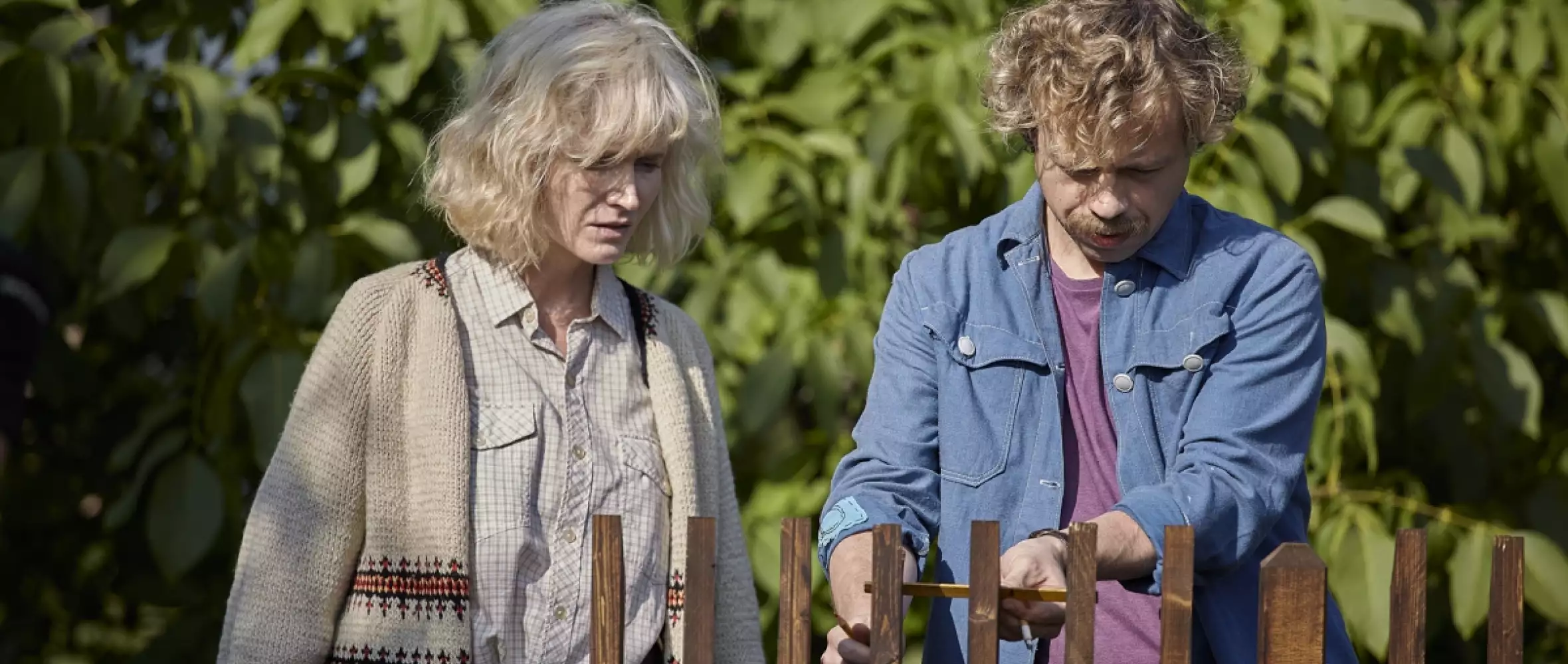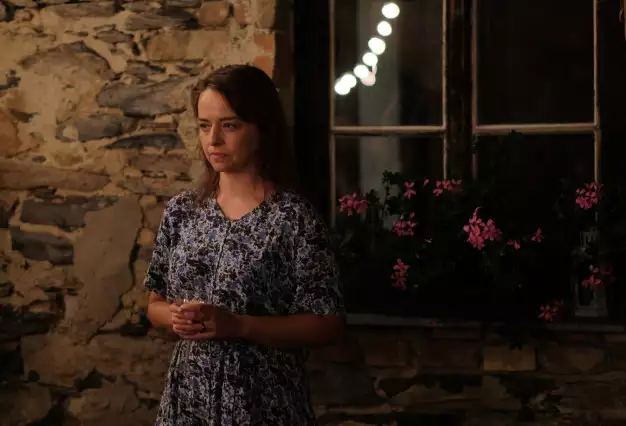
03 March 2020
Slávek Horák prepares Václav Havel's biopic
The making of an unruly political hero
Slávek Horák prepares Václav Havel's biopic
The making of an unruly political hero

Emerging filmmaker Slávek Horák explores the lesser-known side of Václav Havel’s rise to becoming a symbol of democracy, in the creative biopic Havel.
Article by Martin Kudláč for CZECH FILM magazine / Spring 2020
“On the one hand, political power gives you the wonderful opportunity of confirming, all day long, that you really exist, that you have your own undeniable identity, that with every word and deed you are leaving a highly visible mark on the world. Yet within that same political power lies a terrible danger that while pretending to confirm our existence and our identity, will, in fact, rob us of them.”
Václav Havel (Michael Žantovský, Havel: A Life, 2014)
Not everyone gets a kick start to their career the way Slávek Horák did. The Czech writer, director, and producer went from being an award-winning director of commercials to fiction filmmaking in his forties, with Home Care (2015), a bittersweet rural dramedy about dying and sacrifice.
Leading actress Alena Mihulová excels under Horák’s sensitive directing as a self-sacrificing home nurse who discovers she has a terminal illness and has to come to terms with her mortality while preparing her family for what will come after she is gone.
Home Care charmed audiences on both sides of the spectrum, mainstream and arthouse alike. After raking in a handful of international film awards on the festival circuit, it was selected as the national pick for the Oscars race in 2015 by the Czech Film and Television Academy, and the industry trade magazine Variety named Horák one of 10 directors to watch.
Previously, the rising Czech talent had served as second assistant director on Jan Svěrák’s 1996 Oscar-winning drama Kolya, followed by a long stint in advertising. “I was waiting until I was ready and mature enough to create something significant,” he told Variety after unveiling his fiction feature debut.
Home Care became Horák’s rite of passage — which was convenient, given that he already had another ambitious project in mind. “I’m primarily interested in the protagonist,” Horák says of his character-driven approach to plotting and story building. In his debut, the leading character was inspired by his own mother, who served as the center of the heart-stirring story. But the protagonist he had in mind for his sophomore feature already had a protagonist with a fully fleshed story to tell.
Trials and delights
The subject of Horák’s new project, titled simply Havel, is none other than Václav Havel, the celebrated Czech playwright, dissident, and statesman, considered to be one of the most important intellectuals of the 20th century. The script is based on meticulous research and the recollections of Havel’s closest peers. Writing and fine-tuning the project’s script took three years, with the director joined in this work by his Home Care collaborator, Rudolf Suchánek. The story, based on true events, unfolds over the course of two decades and follows Havel’s transformation through three different periods of his life.
Havel has already been the subject of many documentaries. Horák never intended to shoot “a descriptive biography,” though. He wants the audience to relive Havel’s life story through his own eyes, which means tapping into lesser-known events and gaps in the official biography. This is why he decided to espouse fiction filmmaking to tackle Havel’s life story in the form of a creative biopic. Mapping out the making of the Velvet Revolution’s leader, Horák’s film scrutinizes Havel’s reactions in conflicting situations — his hesitations and decisions, the fears and insecurities that shaped his personality. The film explores the internal drama, thinking, and motives of this famous “entertaining intellectual” and, most of all, flawed human being.
The story begins with the future president as a young playwright, enjoying the freedom of Prague Spring 1968, when “politics is as exciting as theater, sex, drugs, and rock ’n’ roll,” as the writer-director notes. After the Soviet-led invasion, Havel refuses to sign a statement approving the occupation, which earns him the distinction of being “a forbidden author.” Eventually, he manages to unite a diverse group of critics around a common program of human rights. After a prison stint, with public unrest growing and the regime on the verge of crumbling, Havel rides the momentum of the Velvet Revolution to become Czechoslovakia’s first democratically elected president and a symbol of democracy in Eastern Europe as a whole.
Meandering between Havel’s professional and private lives, Horák’s film also includes Havel’s lopsided relationship with his first wife, Olga. “I knew he was a man of flesh and blood,” says Horák, emphasizing that he didn’t set out to make a monument. He explains that he does portray Havel’s debauched lifestyle and serial infidelities, contributing to the absurd humor that is an integral part of the film. Yet he insists there is nothing controversial or sensationalistic about the film, which he likes to refer to as a “biodramedy.”
The man behind the legacy
Each of the three different historical periods in the film is matched with its own distinctive visual style. Scenes from the ’60s, when Havel lived the life of a bohemian playwright, feature the black-and-white look of Czechoslovak New Wave films. Havel’s dissident period, in the ’70s, is rendered in the colors of domestic films of that era, followed by the grainy aesthetics of period footage as he becomes leader of the revolution in the ’80s. Horák explains that the stylization is used in a natural way, implicitly indicating each time period along the way as the story line unfolds.
Picking the right cast was another crucial step. Even when the script was in development, Horák says he still didn’t know who would play the leading role. Then he ended up with a roommate in film school who bore an uncanny resemblance to the former president. That roommate, Viktor Dvořák, turned out to be a theatrical actor, and he got the role right after meeting Horák. This will be his first lead role in a film, though coincidentally, he brilliantly portrayed the famed statesman and freedom fighter already in a minor role in Irena Pavlásková’s recent film adaption of the Philip Roth novel
.
Compared to the lead, choosing someone for the role of Havel’s wife Olga was easy. “She’s exactly Olga’s type. No one else even auditioned,” says the writer-director of Anna Geislerová. The popular Czech actress (and five-times Czech Lion Award holder) recently starred in the glossy political thriller Amnesty, revolving around Havel’s controversial amnesties shortly after he became president (a period that isn’t part of Horák’s film).
Principal photography wrapped in late November with the film crew shooting predominantly in Prague. The final scene was also shot in Prague, on the iconic balcony of the Melantrich building on Wenceslas Square, re-created on the 30th anniversary of the Velvet Revolution: November 17. Horák expects to have the final film ready by April 2020, after postproduction work is done, though he says the rough cut is ready.
The writer-director is producing his sophomore project through his own company, TVORBA films, while Czech Television is boarding the project as a coproducer as it did on his feature debut. Half of the film’s 2.33 million EUR budget comes from the Czech Film Fund (EUR 557 692) and a MEDIA Development grant, with the other half chipped in by private Czech investors who consider the topic important. The film doesn’t yet have a sales agent, though it is presented as a work-in-progress at Les Arcs to tempt sales agents and distributors. No pre-sale deals have been pursued either. “We didn’t need to do any pre-sales since the film was fully financed,” says Horák. He added that he is confident Havel will sell itself once released. Domestic release is scheduled for July 2020 by Bontonfilm in the Czech Republic and Slovakia.
Václav Havel was not only a global celebrity but remains the paramount political leader and hero of the Velvet Revolution. By re-creating the transformation from carefree bohemian to adored national leader, Horák looks at the man, often unruly yet still inspirational, behind the legacy.




